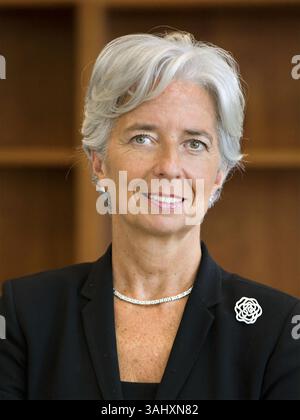Key Highlights
- Christine Lagarde praised Germany for increasing its spending after years of restraint.
- The new German government has proposed a €400 billion investment drive to rebuild infrastructure and modernize the military.
- This fiscal push could add 1.6% to average GDP growth by 2030, according to experts.
- The decision is seen as a turning point for Europe’s largest economy and could boost regional growth.
Germany Embraces Fiscal Policy
European Central Bank President Christine Lagarde highlighted Germany’s recent shift towards increased spending during remarks at the International Monetary Fund (IMF) annual meetings in Washington. Her comments came as Germany, long known for its fiscally conservative stance, unveiled a significant fiscal push aimed at rebuilding infrastructure and modernizing its military.
The new German government, led by Chancellor Friedrich Merz, has proposed an ambitious €400 billion investment drive to address critical areas such as infrastructure and defense. This plan marks a departure from the previous administration’s tight budget policies, signaling a shift in economic strategy that could have far-reaching implications for Europe.
Impact on German Economy
The newfound willingness of Germany to borrow and invest is expected to boost the country’s economic output significantly. Monika Schnitzer, chair of the German government’s panel of economic advisers, estimated that this spending drive could add 1.6% to average GDP growth by 2030. This represents a substantial improvement over the long-term pace since Germany’s reunification in 1990.
Investor confidence in Germany has surged as a result of these developments. The DAX index, one of Europe’s leading stock market indices, has reached new records this year, driven by expectations of sustained economic growth and political stability under the new leadership.
Global Reactions and Future Implications
The move to increase spending is not without its critics. Some economists warn that if the funds are directed towards short-term relief measures rather than long-term investments in infrastructure, rail, and technology, the growth effect could be significantly reduced. Alexander von zur Mühlen of Deutsche Bank emphasized the need for strategic investment: “Outside of Europe they say: the sleeping giant Germany has woken up.
We need to use the momentum.”
While Lagarde praised the decision, she also noted that challenges remain. Political divisions and weak coordination could hinder progress if not managed carefully. Nonetheless, the fiscal push is seen as a pivotal moment for Germany’s economic future, potentially setting the stage for greater regional cooperation and growth across Europe.
Conclusion
The shift in German fiscal policy under Chancellor Merz signals a new chapter in European economic dynamics. As Germany embraces increased spending, it not only strengthens its own economy but also boosts prospects for broader regional recovery. The coming years will be crucial as the country navigates this ambitious agenda and demonstrates whether a more expansive approach to government spending can deliver lasting benefits.

